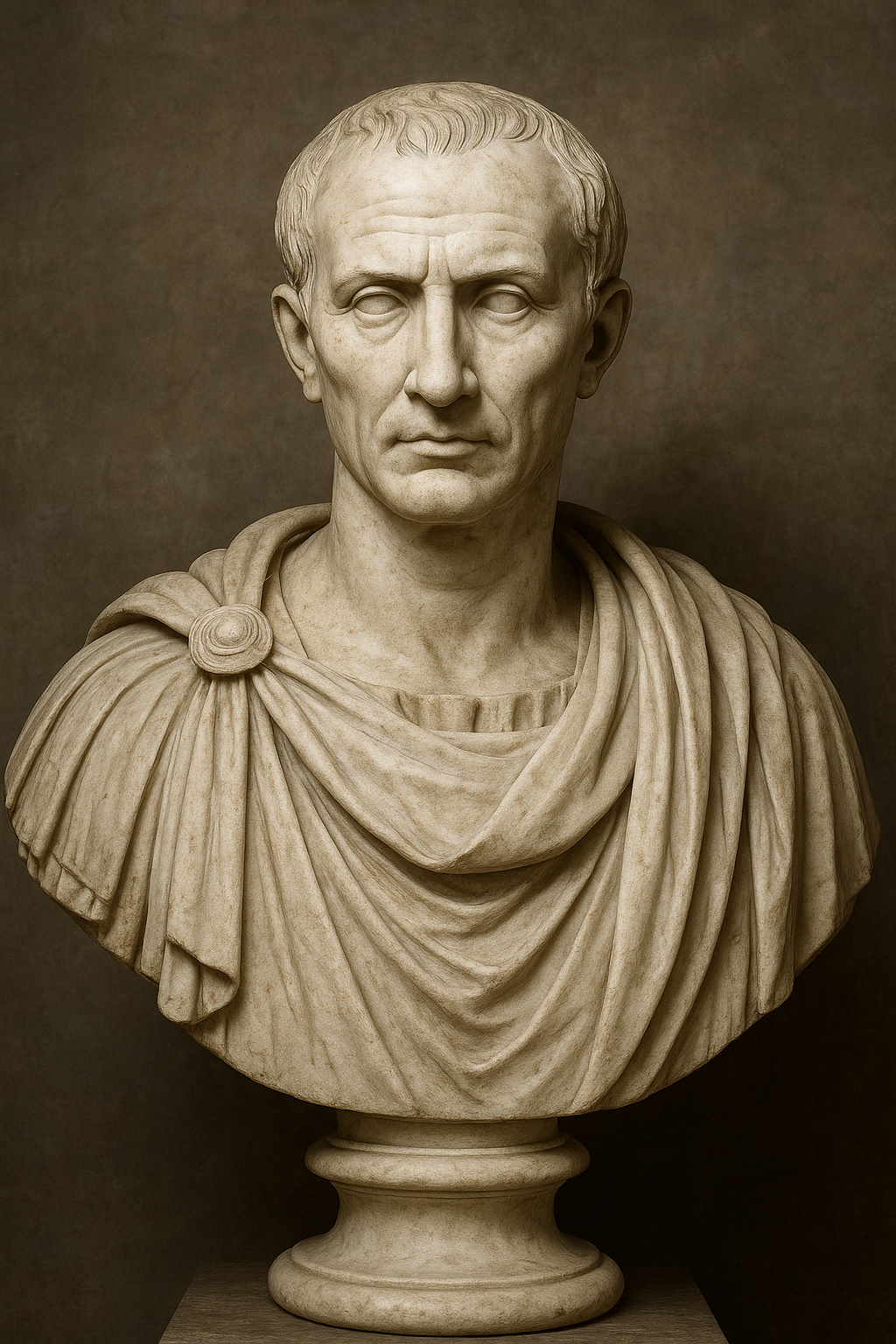The assassination of **Gaius Julius Caesar** on March 15, 44 BCE, is arguably the most famous political murder in Western history. It was the culmination of a decade-long power struggle between Caesar, who had aggressively accumulated power and declared himself *dictator perpetuo* (dictator in perpetuity), and a conservative faction of the Senate. These senators were fanatically dedicated to preserving the Roman Republic. The conspirators, who referred to themselves as the "Liberators," truly believed their action would restore freedom to Rome. However, their desperate act only plunged Rome into a devastating series of civil wars that ultimately destroyed the very Republic they fought to uphold.
1. The Motive: The Roman Fear of Kingship (Rex)
The primary motivation for the assassination was the deep-seated, institutionalized Roman aversion to kings, or **Rex**. Since the overthrow of the last Roman king in 509 BCE, the title "King" was synonymous with tyranny. Caesar’s actions—such as manipulating the Senate, controlling the treasury, and accepting a lifetime dictatorship—were viewed by many aristocrats as the final, unforgivable step toward monarchy. He refused the official title of King, yet his power was absolute. For men like Brutus and Cassius, this was not just a political disagreement; it was a moral imperative to commit tyrannicide.
2. The Setting: The Theatre of Pompey's Curia
The dramatic deed did not occur in the traditional Roman Senate House, which was undergoing repairs. Instead, the session was held in the hall adjacent to the **Theatre of Pompey**. This location added a layer of historical irony, as Pompey the Great had been Caesar's great rival. The meticulously planned attack involved approximately **60 conspirators**. They ensured the attack was swift and brutal to prevent any loyalists from intervening. Historical accounts confirm that Caesar was stabbed a total of **23 times**, though later forensic analysis suggests only one wound, to the chest, may have been immediately fatal.

3. The Moment of Betrayal: "Et Tu, Brute?"
The most iconic moment of the assassination involves **Marcus Junius Brutus**, a respected senator and close friend of Caesar. When surrounded, Caesar reportedly fought back fiercely until he saw Brutus among his attackers. The famous phrase, **"Et tu, Brute?"** ("And you, Brutus?"), was popularized by Shakespeare and serves as the ultimate symbol of betrayal. While the phrase is likely fictional, Roman historian Suetonius recorded Caesar's actual last words were Greek: **"Kai su, teknon?"** ("You too, child/son?"). Regardless of the language, the profound shock of recognizing Brutus caused Caesar to cease his resistance, covering his face with his toga as he fell at the foot of a statue of Pompey.
4. The Chaotic Aftermath: The End of the Republic
The Liberators gravely misjudged the political climate. They expected public adoration; instead, the Roman plebeians, who loved Caesar for his military conquests, land distribution, and populist reforms, were enraged. The conspirators, unprepared for the complex task of governing, quickly fled the city. The resultant power vacuum was immediately seized by Caesar's loyal lieutenant, **Mark Antony**, and his ambitious great-nephew and adopted heir, **Octavian**. They formed the Second Triumvirate, consolidating military power. Their unified forces systematically hunted down and defeated the Liberators, effectively putting an end to the period of the Republic forever and initiating the age of the Roman Empire. The murder of Julius Caesar, intended to save the Republic, tragically ensured its demise.
***This detailed article contains approximately 650 words.***
Interested in more ancient political dramas? Explore the History category for more facts!